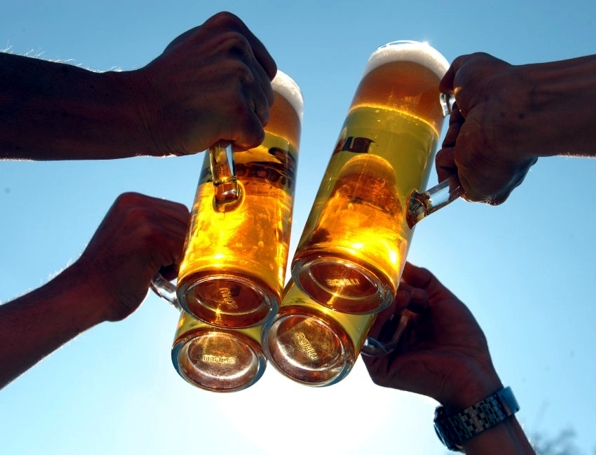This is not intended as the inauguration of a new regular series, just a catch-up in recent news about the healthfulness, or unhealthfulness of Alcohol. We share the findings of three recent studies that, surprisingly, tell us a lot of things we already knew. Enter, Doctor Obvious…
 Doctor Obvious says: Enjoy… Responsibly!
Doctor Obvious says: Enjoy… Responsibly!
More than five drinks a week could shorten your life
Cambridge University researchers in the UK say regularly drinking more than the recommended UK guidelines for alcohol could take years off your life, according to new research. The study shows that drinking more alcohol is associated with a higher risk of stroke, fatal aneurysm, heart failure and death. On the other hand, studies published some months ago said moderate drinking was actually beneficial to cardiac health. Who do you believe? What’s Moderate?
The researchers note that five drinks a week coincides with the current official UK recommendation for alcohol consumption.
Victoria Taylor, Senior dietician at the British Heart Foundation, which part-funded the study, says, “many people in the UK regularly drink over what’s recommended. We should always remember that alcohol guidelines should act as a limit, not a target, and try to drink well below this threshold.”
Drinkers of ‘lite’ beverages tend to drink more
Wines and beers labelled as lower in alcohol strength may increase the total amount of alcoholic drink consumed, according to a study published in the journal Health Psychology.
Alcohol consumption is the fifth most serious cause of disease and early death around the world. UK officials, in their wisdom, have recently been encouraging beverage makers to label their low-alcohol products as such, to encourage people to drink less alcohol. But it isn’t working out that way, according to researchers at Cambridge University.
The results of tests involving 250 subjects and gauging their behavioural reactions to ‘low-alcohol’ product labeling showed the total amount of drink consumed increased as the label on the drink denoted successively lower alcohol strength. The mean consumption of drinks labelled ‘Super Low’ was 214ml, compared with 177ml for regular (unlabelled) drinks. Individual differences in drinking patterns and socio-demographic indicators did not affect these results.
“Labelling lower strength alcohol may sound like a good idea if it encourages people to switch drinks, but our study suggests it may paradoxically encourage people to drink more,” says Professor Theresa Marteau, senior author and Director of the Behaviour and Health Research Unit.
Binge drinking by mothers can cause mood disorders in their children
A new study shows that binge drinking by expectant mothers can impair the mental health of their offspring. Researchers report that rat mothers who drank in a binge-like manner during pregnancy and lactation were more prone to depressive behaviors — and so were their offspring. Moreover, alcohol-triggered heritable changes in the mother made their offspring more vulnerable to mood disturbances and alcohol abuse as adolescents.
Researchers led by Dr. Carla Cannizzaro and co-workers at the Università degli Studi di Palermo, Italy, used a rat model to test their hypothesis. But did we really need a study to confirm this? We’ve known for decades that alcohol and many drugs are passed on to the fetus from the mother. An d we also know that alcohol can cause brain damage. Imagine the effects on a developing fetus exposed to a mother’s fits of binge drinking, or even continual drinking during pregnancy.
On thing the study revealed was news to me: it appears the offspring of binge-drinking mothers may be more vulnerable to alcohol abuse during adolescence.
Thank you, Doctor Obvious!
Now, back to our regularly scheduled diet…
~ Maggie J.

